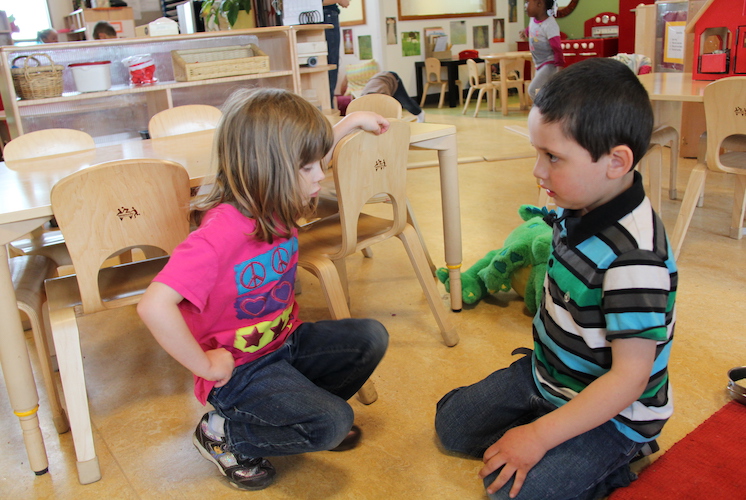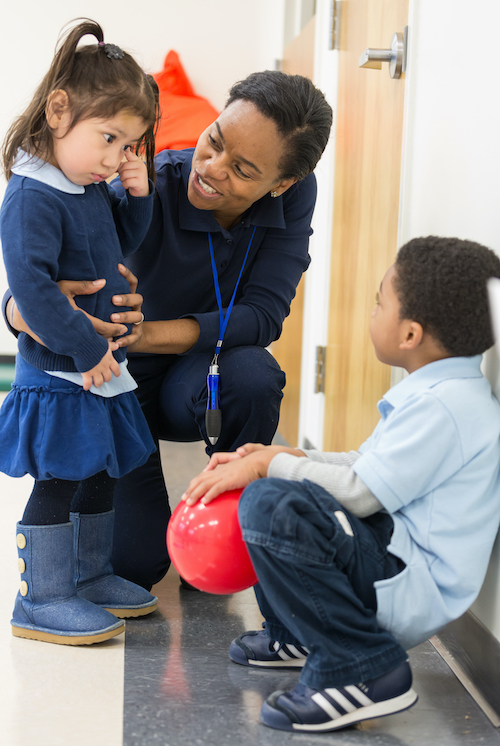 In the preschool years, children typically demonstrate increasing independence in managing their emotions. They more appropriately express emotions, use the adult as a guide for more challenging situations and intense emotions, and find coping strategies that work. As preschoolers' expressive language and vocabulary skills grow, they learn to communicate more clearly with increasing detail and more advanced ways. They begin to:1
In the preschool years, children typically demonstrate increasing independence in managing their emotions. They more appropriately express emotions, use the adult as a guide for more challenging situations and intense emotions, and find coping strategies that work. As preschoolers' expressive language and vocabulary skills grow, they learn to communicate more clearly with increasing detail and more advanced ways. They begin to:1
- Control their actions and words in response to a challenging situation
- Manage their behavior according to expectations, such as using "walking feet" indoors when asked
- Refrain from aggressive behavior toward others
- Identify how others' actions or behaviors make them feel
- Identify how their actions or behaviors might make someone else feel (older preschoolers)
Even with these developing abilities, we still expect preschoolers to become upset at times, like when they have to wait for a turn or want to use the same materials or toys as another child. However, we also expect and encourage preschoolers to use their growing self-regulation skills to recover and return to what they were doing or the child they were playing with before. Similar to infants and toddlers, preschoolers' relationships with adults, temperaments, and other factors continue to play a role in how children manage their emotions and behavior.  Head Start programs consider these factors as they promote children's emotional, behavioral, and social development by providing intentional interactions, planned individual and group learning experiences, and working with families.
Head Start programs consider these factors as they promote children's emotional, behavioral, and social development by providing intentional interactions, planned individual and group learning experiences, and working with families.
Review related HSPPS:
- Teaching and the learning environment, 45 CFR §1302.31(b)(1)(ii–iv) and (c)(2)
- Curricula, 45 CFR §1302.32(a)(1)(iii)
- Parent and family engagement in education and child development services, 45 CFR §1302.34(b)(2) and (4–5)
- Education in home-based programs, 45 CFR §1302.35(c)(1–3), (d)(1)(i–iii), and (e)(2–3)
1 U.S. Department of Health and Human Services, Administration for Children and Families, Office of Head Start, Head Start Early Learning Outcomes Framework: Ages Birth to Five (Washington, DC, 2015), 17.
Read more:
Resource Type: Article
National Centers: Early Childhood Development, Teaching and Learning
Last Updated: October 20, 2020
